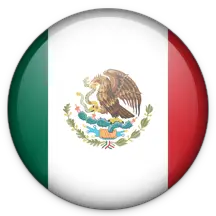
Sugar Replacements: Exploring Healthy Alternatives.
Consuming products that are pleasant to the taste and evoke pleasurable sensations is a constant quest and continues to be an essential part of our lives. At the same time, we are increasingly aware that we must eat a healthy and balanced diet to maintain or improve our quality of life.
The food industry has responded to both needs by enabling us to create options that allow us to enjoy healthier foods and balance indulgence with wellness.
Strategies to promote a balanced diet have been focused on reducing the consumption of calories and refined sugars. In this sense, the concern about excessive sugar consumption and the search for substitutes has been growing; this was already stated by the World Health Organization (WHO) in its guideline on sugar intake in 2015, where it recommends “Having a reduced intake of free sugars throughout life” (1,2).
The market and sugar-reduced products
The industry has been moving in this direction. In a report published in May this year, Mintel notes that claims related to sugar reduction are becoming increasingly common in global launches, especially in products such as juices, baby food, flavored waters, and energy and sports drinks, where 25% of launches in the latter two categories included “sugar-free” or “no added sugar” claims (3).
Based on data compiled by Mintel, more than 290 products have been launched in Chile with these claims between 2019 and 2022, and, from January to May this year, there are already 32 new products claiming to be sugar-free or with no added sugar. Of these launches, the sweeteners used that lead the list are sucralose and maltitol, both present in 28% of these products, followed by stevia, present in 22%, and erythritol, isomalt, and sorbitol, with a smaller presence (3.4%).
Among the categories with more launches are “spoonable” yogurts, cereal bars, breakfast cereals, and sweet cookies, primarily oriented towards indulgence.
Candidates as a Refined Sugar Replacement
Although sucralose and stevia are the most recognized sweeteners, the industry continues to explore other low or calorie-free options, obtained naturally or synthetically, that are an alternative to refined sugar. These include Allulose, Tagatose, Monk fruit (Luo Han Guo); polyols, such as Erythritol and isomaltitol; and many lesser-known ones, such as Isomaltulose, also known as Palatinose; Thaumatin and some proteins such as Miraculin, among others.
D-allulose, or Allulose, is a natural sugar with zero calories and 70% of the sweetness of sucrose (4). As of 2019 in Chile, new products with this sweetener were launched, among which traditional tabletop sweeteners, chocolates, manjar, sweet cookies, cakes, and cereal bars stand out.
Isomaltulose, on the other hand, is a disaccharide composed of a glucose and fructose unit linked by an α-1,6 glycosidic bond that is less easily hydrolyzed by digestive enzymes in the gastrointestinal tract. Whereas isomalt, or isomalt, is obtained by hydrogenation of isomaltulose and has been used in sugar-free hard candies and chewing gums (5).
It has been reported that isomaltulose generates a low glycemic index and insulin response and prolongs glucose supply to the circulatory system (6). In Chile, it is a sweetener still little explored and is emerging as a safe and healthy solution for sugar replacement.
Perspectives and recommendations
With the growing supply of products with no added sugar and the emergence of new sweeteners, it is not surprising that future launches will begin to incorporate these new additives. Although it does not provide specific details or recommendations for each type of sweetener, institutions and organizations are paying increasing attention to the usage of sugar substitutes, as reflected in the recent WHO guideline published in May this year, which makes a conditional recommendation to “discourage the use of non-sugar sweeteners to control body weight or reduce the risk of non-communicable diseases.”
On the other hand, the International Sweeteners Organization states that “low calorie/no calorie sweeteners play a key role in helping to address the burden of non-communicable diseases and the global obesity crisis.” Likewise, recommendations from the American Diabetes Association and the American Heart Association reaffirm that sugar alcohols and non-nutritive sweeteners are safe if their consumption is within the daily intake levels established by regulatory agencies, such as the Food and Drug Administration (FDA) (7).
Given the diverse opinions on this topic, the widespread lack of knowledge, and the high demand for these additives, it is crucial to research and understand the nature of each of them, their benefits, and even their side effects or usage restrictions.
At Mathiesen, we are committed to our customers and consumers, providing accurate and reliable information on the sweeteners in our portfolio and advising them on their utilization in their new developments. Contact us! and discover how our products can make a difference in your formulations.















